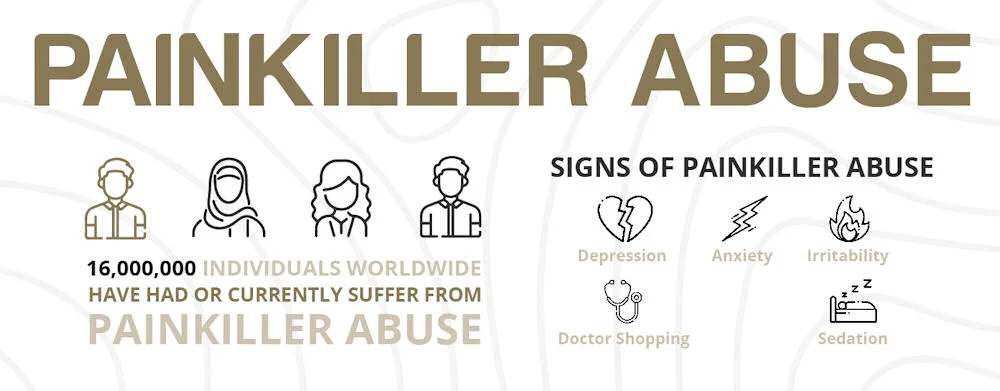The way pain is experienced is through how the body communicates with the brain. When pain is present, the central nervous system sends signals to opioid receptors in the brain, alerting the brain to discomfort. When an individual takes painkillers, two things happen: the central nervous system is depressed, making it harder for pain signals to reach the brain, and it attaches to opioid receptors blocking pain signals in the body. Painkillers also generate a feeling of euphoria and relaxation. In the case of opioid painkillers, these experiences happen much more quickly and powerfully. A painkiller addiction treatment program offers relief for those who have become addicted to prescription painkillers.
At Westwind Recovery®®, our highly skilled treatment team is adept at effectively treating painkiller addiction. We understand that you may have become addicted without even realizing it, especially when you have been on painkillers long-term for chronic pain or illness. When you are ready to break the cycle of painkiller addiction, reach out to us.
What Are the Signs of Painkiller Abuse?

If you have found yourself in the grips of painkiller addiction, you may be wondering how you’ve gotten to this place. You may also be having feelings of shame, guilt, or embarrassment. It is important to remember that addiction is a disease and that you are not alone. More importantly, know that effective treatment is available. If you have been on painkillers for an extended time, you might be genuinely unaware of having a dependency or addiction.
Specific signs of painkiller abuse will depend on factors including your genetic makeup, length of addiction, frequency of abuse. Some common signs include:
- Mood symptoms such as irritability, euphoria, and mood swings.
- Behavioral symptoms such as lying, stealing, doctor shopping, or social isolation.
- Physical symptoms such as pinpoint pupils, slurring, sedation, and tolerance.
- Psychological symptoms such as anxiety, depression, or psychosis.
Most people abusing painkillers stay stuck in the cycle of addiction because of the fear of going through withdrawals. While painkiller withdrawal symptoms are generally not life-threatening on their own, they can cause significant physical and psychological distress and become dangerous when individuals are abusing more than one substance. The combination of alcohol and painkillers can have severe repercussions.
The Effects of Painkillers on the Body
When you take painkillers longer than you should, you are preventing your body from relieving pain naturally. Prolonged use of painkillers profoundly impacts the central nervous system and makes your brain dependent upon them to produce natural chemicals that help you feel good. These drugs have a ripple effect on many of the body’s systems, and long-term impacts lead to:
- Liver damage and liver disease
- Cardiovascular issues, heart attacks, and heart disease
- Constipation, bloating, bowel obstructions, stomach distension, ulcers, and hemorrhoids
- Collapsed veins and blood-borne infections
- Seizures
- Overdose and death
The impacts of painkiller addiction are far-reaching and have devastating consequences. Relationships suffer, and families are torn apart. Many people end up jobless, homeless, or incarcerated. The risk for overdose is very high, especially when painkillers are mixed with alcohol or other drugs, which is commonly the case.
Contact Westwind Recovery®® for Painkiller Addiction Treatment
Much of painkiller addiction begins when a person needs to manage their pain following an injury or surgery or has a chronic illness or chronic pain. For years neither doctors nor patients were aware of the highly addictive nature of many prescription painkillers, which led to an epidemic we are still battling. Not everyone who takes painkillers will develop a dependency or addiction. Still, for those that do, a painkiller addiction treatment program is the safest and healthiest way to break the cycle of addiction.
At Westwind Recovery®®, we understand that every person’s path to addiction is unique to their situation and experiences. We provide holistic and evidence-based treatment individualized to your needs in a safe, supportive, non-judgmental environment. When you are ready to break free from painkiller addiction, we are here to help. Contact us today.

Dr. Deena is the Chief Clinical Officer of Westwind Recovery®, an award-winning outpatient treatment center in Los Angeles where she oversees the clinical and administrative program and treatment methods. Dr. Deena is a doctor of psychology and licensed clinical social worker since 1993. LCSW #20628. Originally from the East Coast, Dr. Deena has worked running treatment centers, worked as a therapist in psychiatric hospitals as well as school settings and currently has a thriving private practice in the LA area. Dr. Deena has appeared regularly on the Dr. Phil Show as an expert since 2003. She has also been featured on many other TV shows, podcasts and has contributed to written publications as well as podcasts.




